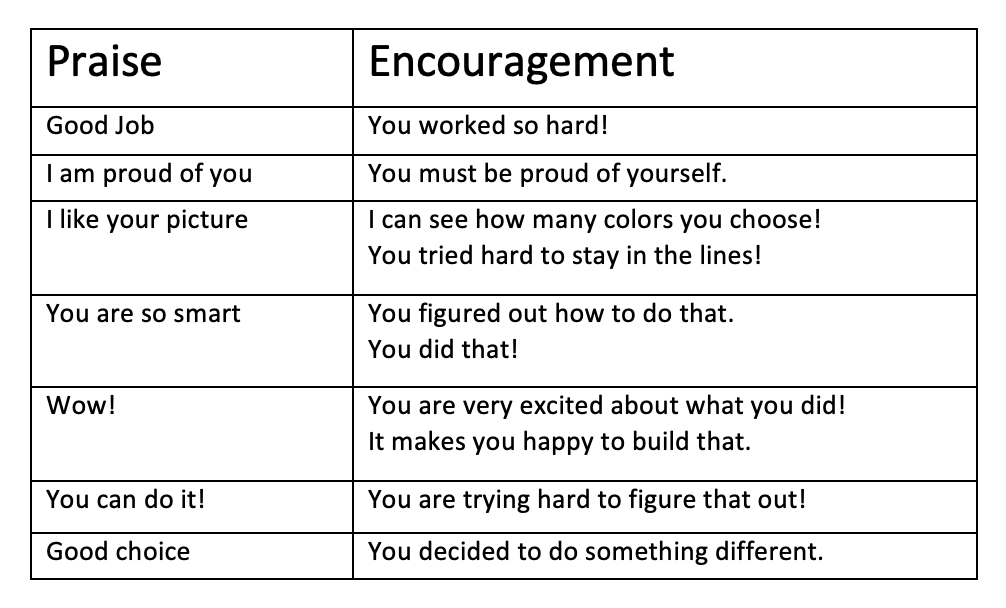Encouragement vs. Praise
Written by: Michaela Tratos, MS, LPC, NCC
Have you ever noticed a child’s face light up when you say “good job”? Or have you seen the glow when you tell them how amazing their picture of a horse is, even if it is just a circle with five lines?
Children love praise; they bask in praise. It might seem counterintuitive when I tell you that I don’t praise children. Hear me out. I don’t praise children, I encourage them.
Children need acceptance and support, knowing they are valued and seen. Praising kids does make them feel seen and heard, but what it doesn’t do is build their internal sense of accomplishment.
Why does this matter? Intrinsic confidence or pride is different from external praise. You can be told “good job” over and over and feel great, but then what happens when you don’t get praise? Are you proud of yourself? Some people are and some people aren’t. Telling a child good job only creates external praise, not helping them build their own sense of accomplishment or worth. So how do we build their own internal praise, letting them find self-confidence and self-worth while still being seen and feeling loved? That’s where encouragement comes in.
Encouragement is defined as the action of giving someone support, confidence, or hope. So how do we move from praising to encouraging? We notice them. We comment on what they are doing, and how hard they are working. We tell them that we see they are trying to make it work, we tell them they put thought into what they were doing. We ask questions and learn more about the little mind that stays busy and creative. What might this look like?
It takes some time to get out of the habit of giving external praise and moving into recognizing their hard work, their creativeness, their heart. Let it take time, explore and learn what works in your daily world. You’ll be surprised how quickly children can learn internal motivation from your encouragement instead of praise.

